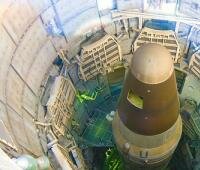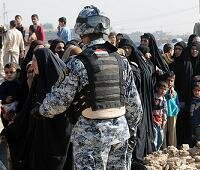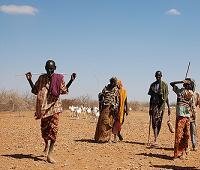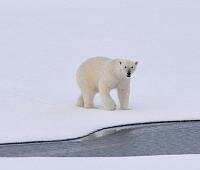Security Net: Nuclear Risk Reduction in Southern Asia
Issue:Global militarisation
“Security Net” is a scenario for a future Nuclear Risk Reduction Regime in Southern Asia. It explores what such a regime might look like, how it might come into existence, what are its central challenges, and what might be its ramifications for nuclear proliferation and non-proliferation policy in Southern Asia today.
This study examines the idea of a “Southern Asia” itself and considers the differences between the relationship of regional identity formation to nuclear non-proliferation in Southern Asia in comparison to Southeast Asia and Latin America. It then considers what sort of internal drivers, wild cards, or outside forces could create incentives for regional cooperation on Nuclear Risk Reduction in Southern Asia the future.
Article source: Institute of Peace and Conflict Studies
Image source: jmuhles
Read more »Posted on 1/06/11
South Sudan: Enhancing Grassroots Peacebuilding
Issues:Competition over resources, Marginalisation
South Sudan’s referendum has come and gone. What lies ahead post-independence in terms of peace, development and security is however still to be determined. The 15 years of war left over one million people dead and more than three million displaced. Negotiations led to the Comprehensive Peace Agreement (CPA) in 2005, which included provision for a referendum on independence for the Southerners. The referendum was held in January, with overwhelming support for succession. But serious challenges face South Sudan as it prepares for independence on 9 July 2011.
Article source: Insight on Conflict
Image source: United Nations Photo
Read more »Posted on 1/06/11
Security Studies and the Marginalisation of Women and Gender Structures
Issue:Marginalisation
In her seminal 1987 text, Bananas, Beaches and Bases, Cynthia Enloe directs the reader's attention to the realm of international politics and asks the question "where are the women?". One might reasonably be expected to answer - they are everywhere. From the political economy, in which women comprise 80% of the global factory workforce and unpaid female domestic labour is estimated to contribute up to 35% of global GDP, to modern warfare, a theatre wherein the majority of victims are women gender is centrally implicated in the machinations of the international system.
Article source: e-International Relations
Image source: jrseles
Read more »Posted on 27/05/11
Petroleum and its Impact on Three Wars in Africa: Angola, Nigeria and Sudan
Issue:Competition over resources
This article focuses on the complex role that oil has played in many conflicts on the African continent. It begins by highlighting oil’s influential role within war at a wider international level and provides a brief theoretical base from which to explore oil’s role in the African continent. Then, the article provides evidence of petroleum’s impact on violent conflicts in three African countries, namely Angola, Sudan and Nigeria, in order to highlight oil’s multi-faceted role on war in Africa.
Article source: Peace Studies Journal
Image source: Maks Karochkin
Read more »Posted on 27/05/11
Connections Between Climate and Stability: Lessons From Asia and Africa
Issue:Climate change
“We, alongside this growing consensus of research institutes, analysts, and security agencies on both sides of the Atlantic, think of climate change as a risk multiplier; as something that will amplify existing social, political, and resource stressors,” said Janani Vivekananda of International Alert, speaking at the Wilson Center on May 10.
Image source: aheavens
Article source: The New Security Beat
Read more »Posted on 19/05/11
Wikileaks reveals Arctic could be the new cold war
Issues:Climate change, Competition over resources, Global militarisation
New Wikileaks releases today have shown the Arctic oil rush is not just a threat to the environment and our climate, but also to peace. The documents show how deadly serious the scramble for Arctic resources has become. And the terrible irony of it is that instead of seeing the melting of the Arctic ice cap as a spur to action on climate change, the leaders of the Arctic nations are instead investing in military hardware to fight for the oil beneath it. They’re preparing to fight to extract the very fossil fuels that caused the melting in the first place.
Article source: Greenpeace UK
Image source: U.S. Geological Survey
Read more »Posted on 14/05/11









